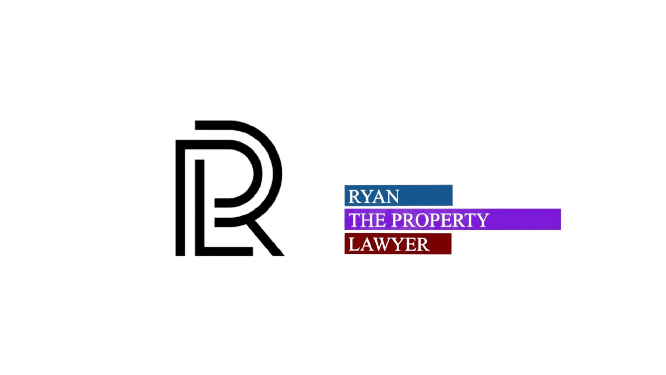Real Estate Development Overview
Real Estate Development’s Legal Challenges is the process of converting vacant land or existing assets into new constructions like housing developments, businesses, or mixed-use developments. Yet, real estate development is a challenging and heavily regulated activity that involves overcoming numerous legal obstacles. I will examine the main legal issues and difficulties in real estate development in this blog article, concentrating on licenses, permissions, and rules.
The significance of permissions, approvals, and rules
Regulations, permissions, and permits are essential to the development of real estate. The public’s safety and welfare, the environment, and compliance with municipal, state, and federal laws are all protected by them. A successful and legally acceptable real estate development project depends on obtaining the required permits and approvals and following applicable regulations. Let’s examine the particular legal difficulties related to real estate development permits, approvals, and regulations.
Pre-Development Phase: Due Diligence and Research
Prior to starting a real estate development project, thorough investigation and due diligence must be carried out. In this stage, the property is analyzed, its potential for development is evaluated, and any legal issues are noted. Here are some significant legal issues to think about in the planning stage:
Rules on land use and zoning
It’s crucial to comprehend the zoning and land use laws that apply to the property. Zoning regulations specify what uses of land, such as residential, commercial, or industrial, are permitted within a certain jurisdiction. To prevent any legal problems and guarantee that the proposed development is consistent with the approved land use, compliance with these laws is essential.
Environmental Evaluations
To find any potential environmental threats or problems on the site, environmental evaluations are essential. This covers evaluations for wetlands, endangered species, pollutants, and other environmental issues. Moving the development project ahead requires observing environmental standards and resolving any problems identified during the assessment.
Ownership and title
To verify clear ownership of the land and locate any liens, encumbrances, or legal conflicts that might have an impact on the development project, a complete title search and investigation are required. To obtain funding and proceed with the development process, it is essential to resolve title disputes and guarantee a clear transfer of ownership.
Procedure for Grants and Approvals
Getting the required permits and approvals for the development project comes after the pre-development phase is finished. Working closely with regional governmental and regulatory organizations is a must for this procedure. The following are some significant legal issues that arise throughout the permission and approval process:
Building Licenses
Building permits are required for any construction or renovation work on the property. Applications frequently require the submission of thorough building plans, engineering drawings, and other pertinent paperwork. To obtain the required permits, adherence to construction rules, fire safety laws, and accessibility criteria is crucial.
Approvals for Land Use
Depending on the intended development project, particular land use approvals may be necessary in addition to building permits. Applications for rezoning, special use permits, variances, or conditional use permits may fall under this category. The legal challenge lies in navigating the complex approval process, addressing concerns raised by local authorities or community stakeholders, and demonstrating that the proposed development aligns with the applicable regulations and community interests.
Environmental Impact Evaluations
An environmental impact assessment is frequently necessary for large-scale development projects in order to analyze any potential environmental effects. This evaluation examines how the project would affect the environment, including the water supply, wildlife habitats, and air quality. To secure the required permits and approvals, it is essential to address any environmental issues brought up throughout the assessment process.
Involvement of the Community and Public Hearings
In many jurisdictions, interacting with the neighborhood and getting input from the public are essential parts of the permitting and approval process. Public hearings and community meetings provide an opportunity for residents, stakeholders, and community organizations to voice their concerns, provide feedback, and express support or opposition to the proposed development project. The odds of receiving the necessary permissions and approvals can be improved by skillfully managing community interaction, attending to concerns, and incorporating community feedback.
Compliance with Regulations and Continuing Duties
Real estate developers must ensure continued compliance with laws throughout the development process after obtaining the required permits and approvals. Regulator rules that are not followed may be challenged in court, fined, or even cause project delays. These are some significant legal factors to take into account while planning:
Rules for Construction and Safety
To make sure the project meets the necessary standards, developers must abide by construction and safety rules during the development period. This entails abiding by the relevant construction rules, fire safety regulations, workplace health and safety standards, and other laws. The safety of employees and potential tenants is increased by routine inspections and compliance checks, which also serve to reduce legal risks.
Environmental Responsibility
Developers are required to keep an eye on environmental laws and abide by them all the way through the development process. This covers taking care of garbage disposal, preventing erosion, managing stormwater, and other environmental tasks. Fines, penalties, or even legal action may result from violating these rules.
Contractual Requirements and Risk Control
Contracts must be made with a variety of parties involved in the development of real estate, including suppliers, contractors, and subcontractors. It is essential to negotiate and draft contracts that expressly lay out the duties, rights, and obligations of each party. Throughout the development process, careful contract management, risk analysis, and adequate documentation help reduce legal conflicts and eliminate risks.
Conclusion
In terms of permits, permissions, and laws, real estate development is a difficult endeavor with many legal obstacles. Understanding local, state, and federal legislation in depth and cooperating successfully with governmental organizations and community stakeholders are essential for navigating these difficulties.
By conducting comprehensive research and due diligence, developers can identify potential legal issues early on and take appropriate measures to address them. Hiring seasoned lawyers with knowledge of real estate development can offer crucial direction and aid in negotiating the intricate web of licenses, permissions, and rules.
Ultimately, real estate developers can successfully navigate the legal challenges associated with permits, approvals, and regulations, leading to the realization of their development projects while minimizing legal risks and maximizing the potential for long-term success. This is done by prioritizing compliance, engaging in efficient community outreach, and ensuring ongoing regulatory adherence.
Author Profile

Latest Blog
 Uncategorised22 December 2023What Constitutes a Legal Partnership in Ontario?
Uncategorised22 December 2023What Constitutes a Legal Partnership in Ontario? Uncategorised22 December 2023Characteristics of a Corporation in Ontario
Uncategorised22 December 2023Characteristics of a Corporation in Ontario Uncategorised22 December 2023Intentions Matter When Co-Owning Property
Uncategorised22 December 2023Intentions Matter When Co-Owning Property Uncategorised22 December 2023Consequences of Operating an Ontario Partnership
Uncategorised22 December 2023Consequences of Operating an Ontario Partnership




